Nuclear engagement is a big threat — at least it is this semester for students enrolled in the Humanitarian Aid and Crisis course taught each fall by Middle Tennessee State University that requires students to grapple with the complex decision-making surrounding the issue through interactive, “escape room”-type scenarios.
Led by political science professor Amy Atchison, the course helps students examine the politics of humanitarianism and explore efforts of nongovernmental and international organizations to address challenges in this area.
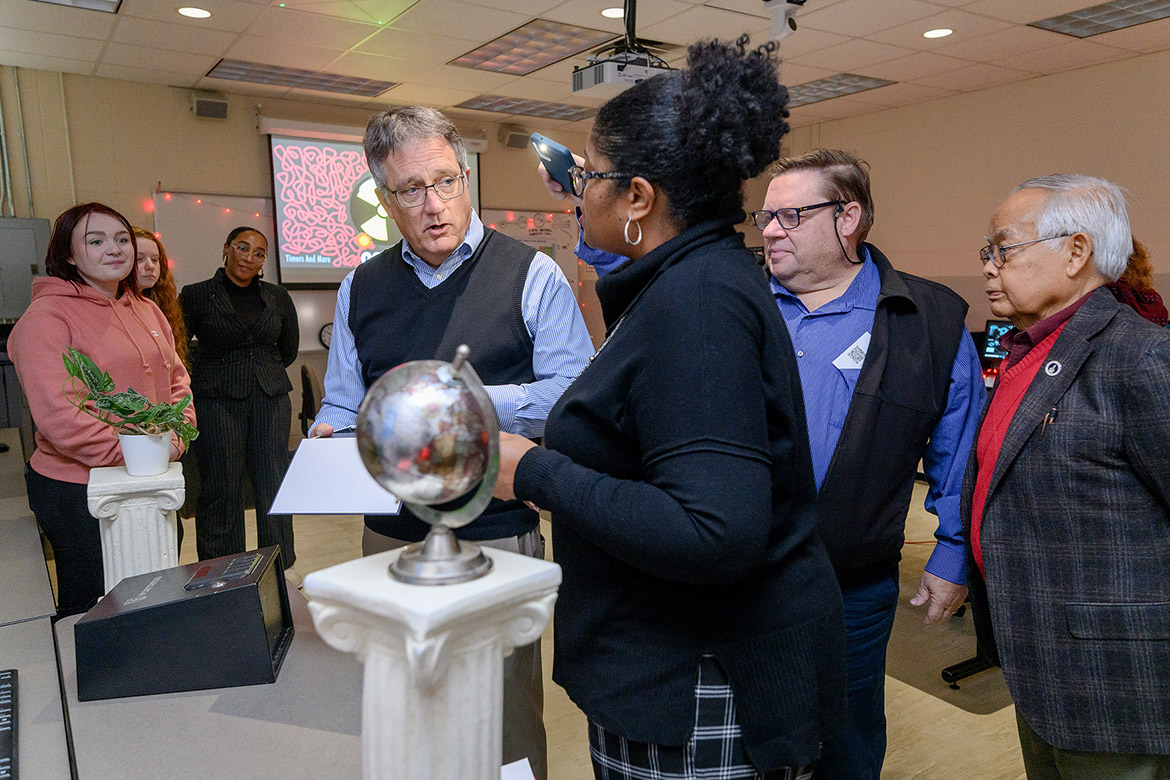
“This is my favorite class to teach,” said Atchison, who also serves as chair of the Department of Political Science and International Relations in the College of Liberal Arts.
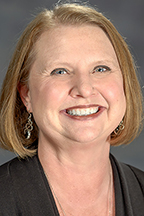
As part of coursework, students participate in the American Red Cross Youth Action Campaign, part of the nonprofit’s International Humanitarian Law program, which educates communities about the rules of war through interactive initiatives. The program is sponsored by the Red Cross’ Service to the Armed Forces division.
The Red Cross program is free and offers a variety of opportunities to raise awareness about the Geneva Conventions, the basic rules of humanitarian law and the role of Red Cross during armed conflicts.
“The Youth Action Campaign’s goal is to do peer education about international humanitarian law,” said Atchison, who implemented the first Youth Action Campaign for a Tennessee university.
Each year the campaign presents a new theme. Previous themes have included the environment and armed conflict, preservation of cultural property, and safety of healthcare workers in armed conflict.
The theme for the 2023-24 academic year focuses on the destructive effects of nuclear weapons during armed conflict and how the law treats dangers posed by such weapons.
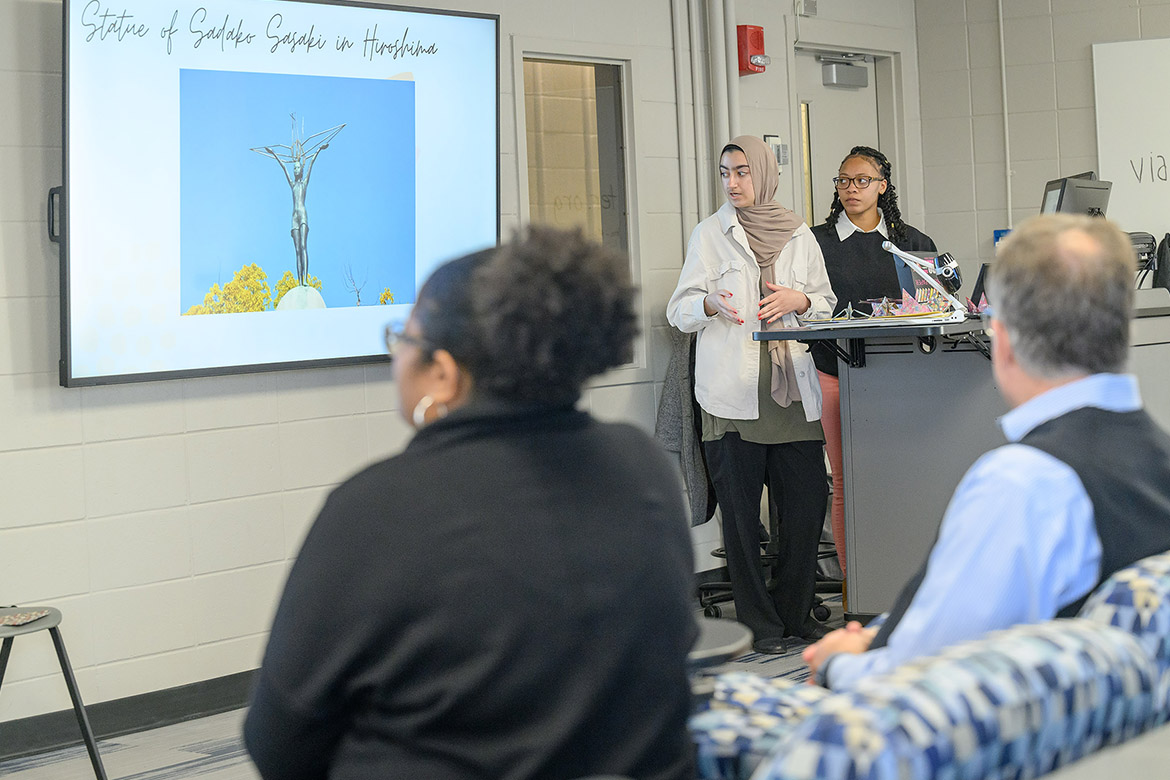
Students go above and beyond
To fulfill requirements of the YAC program, Atchison’s students designed multiple activities, both online and in person, to educate the over 530 participants of the project about international humanitarian law and nuclear weapons. (The Tennessee Red Cross’ statewide goal for the 2023-24 academic year is 500.)
“This is a pretty hard project to do on a nonresidential campus,” Atchison said. “They’ve reached out to fraternities, sororities and university clubs; they’ve done a lot of peer networking and meeting professors. And the College of Liberal Arts faculty and University College faculty have been really welcoming to my students.”
Humanitarian Aid and Crisis is also an Experiential Learning, or EXL, course, which includes hands-on experience in a student’s field of study as well as valuable networking with professionals.
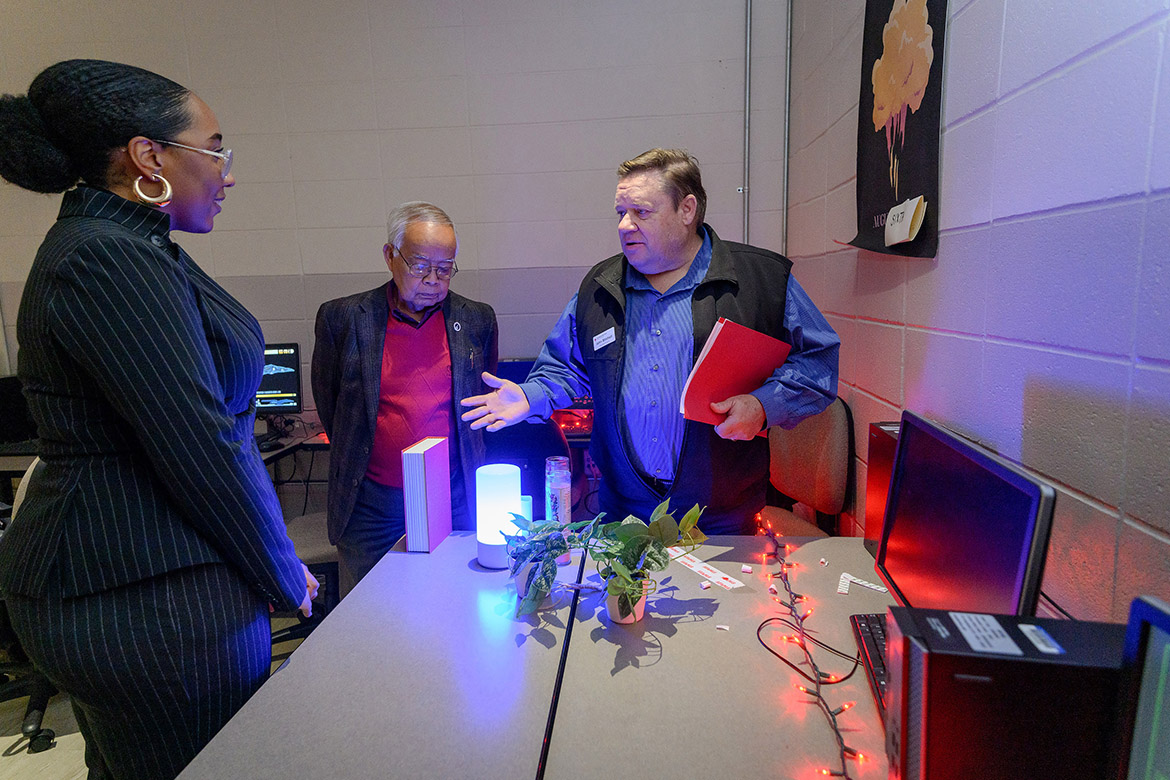
“We’re also grateful for a grant from MTSU EXL and funding from the Tennessee Region of the American Red Cross,” Atchison noted.
The 14 class members include Veronica Banas, Sameria Bohanon, Mallory Casey, Matthew Coppinger, Emily Davenport, Levi Jaeger, Sydney Mattern, Alandra McMillan, Jaia Peterson, Natalie Phillips, Zalykha Rasuli, Madison Staggs, Cameron White and David Wyatt.
Students divided themselves into subgroups based on their interests and talents. Some of the activities included an artillery game, a movie night, origami project, and an escape room that offered online and in-person options.
Students recently hosted Red Cross representatives as well as MTSU Provost Mark Byrnes and College of Liberal Arts Dean Leah Lyons for two of the activities, prefaced with a short presentation on the basics of humanitarian law.
Class members led guest participants in folding paper origami cranes, which were symbolic of the late Sadako Sasaki, a 12-year-old Japanese girl who succumbed to the after-effects of radiation from the atomic bomb dropped on her hometown of Hiroshima. While hospitalized for leukemia, the little girl attempted to fold 1,000 cranes in response to a Japanese legend with the hope of being cured upon completion.
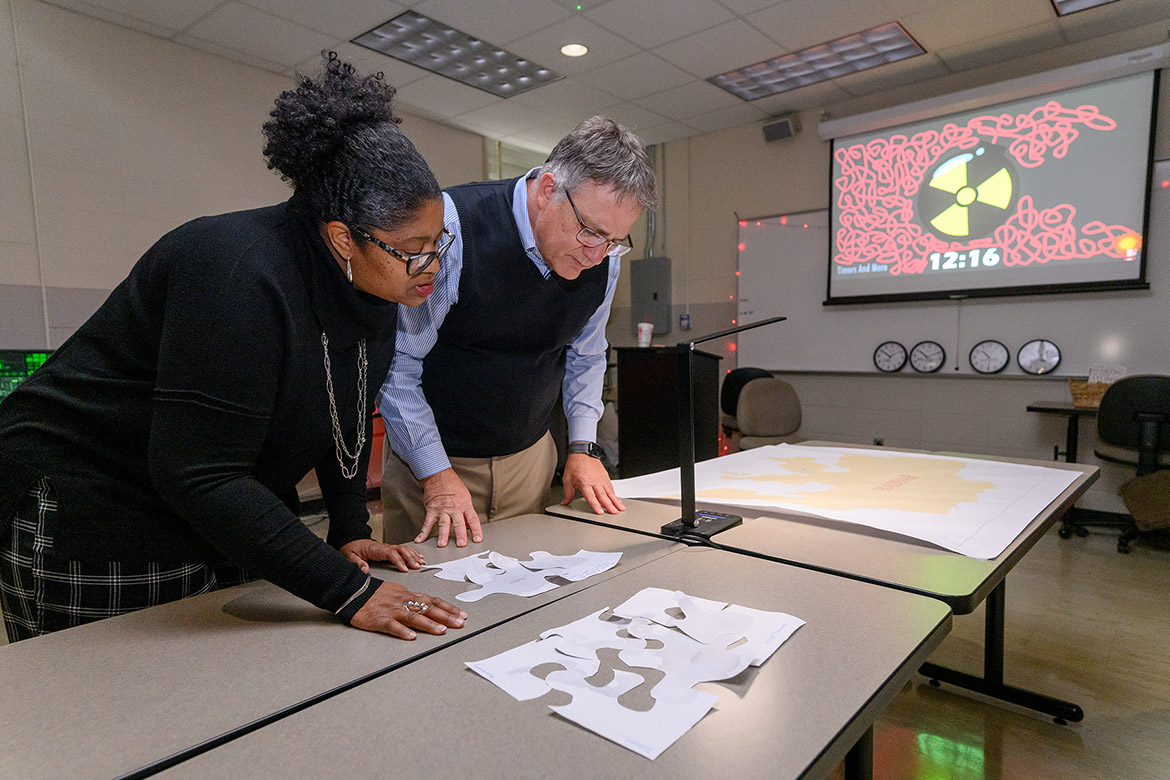
“Her story became the foundation of the Children’s Peace Monument in Hiroshima, Japan,” Atchison said.
For another interactive project, students designed an “escape room”-style scenario in which participants had to solve puzzles in order to prevent the detonation of a nuclear bomb. Students wrote and produced the entire project, including a mock news broadcast — created in the green screen studio at James E. Walker Library — and a Hollywood-worthy simulated “war room” where participants were solving puzzles to prevent the detonation.
“Our escape room goal is to make sure everyone is aware of international humanitarian law in regard to nuclear warfare,” explained student Alandra McMillan, a political science major from Antioch, Tennessee.

The escape room team also decided to create a virtual escape room to reach people who weren’t able to come to an in-person event. Atchison said the virtual escape room, developed by international affairs graduate student Mallory Casey, from Crossville, Tennessee, has been a hit and can be played online by visiting https://bit.ly/MTSUEscapeGame.
Virtual escape room participants begin the game facing this scenario on screen about a fictitious nation: “You are the President. Answer the following questions in order to avoid nuclear warfare.”
Participants are then shown a series of principles of international humanitarian law to follow as the game takes them through ever-evolving scenarios and clues related to the use of nuclear weapons that requires the participant to make critical decisions, which are then deemed right or wrong based on the principles of international law.
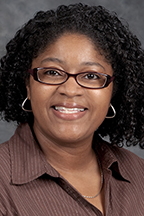
“The work students did in every facet of the presentation was very impressive and really showed their ability to engage with the subject matter from the classroom and create an experience for others,” Lyons said. “What I was most proud of was the cogent presentation of international humanitarian law and how the escape room allowed for application of those principles in a fun and interactive way.”
Student participation extended outside the classroom walls, too. As part of the required work, students also volunteered at least three hours a week with the American Red Cross. Atchison said students went above and beyond — they logged a total of more than 500 volunteer hours over the course of the semester.
“They’ve really gotten into it and I’m really proud of them,” Atchison said. “I think what they’ve been doing is really impressive and I’ve loved watching the students grow.”
— Nancy DeGennaro (Nancy.DeGennaro@mtsu.edu)

COMMENTS ARE OFF THIS POST